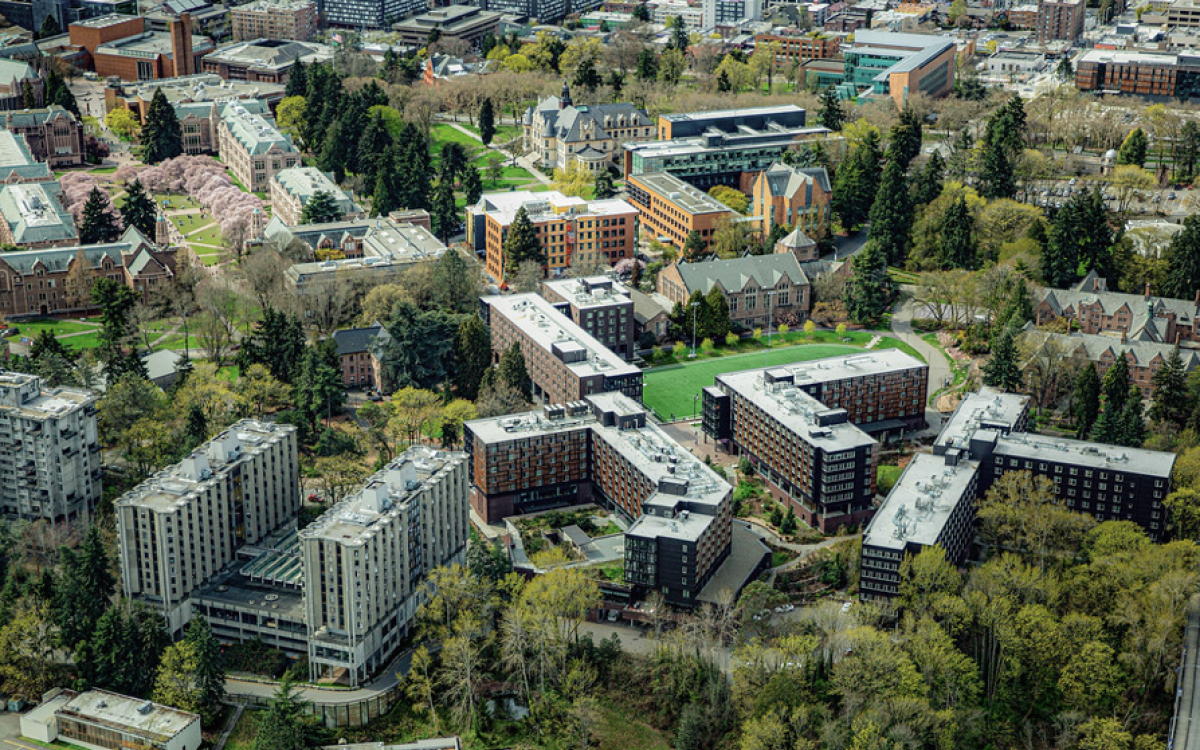At a glance
The School for Urban Studies has developed a 2-credit independent study for Urban Design majors that targets the increased… Read full summary
- Funding received
- 2021-2022
- Mini
- Awarded
- $3,900
- Funding partners
-
- UW Resilience Lab (UWRL)
The School for Urban Studies has developed a 2-credit independent study for Urban Design majors that targets the increased anxiety of many exiting students, partnering with local design and architecture firms to provide mock interviews and detailed feedback sessions to help prepare students for the workforce. “Many of our students are first in their families to attend college,” write Hoffman and Acosta, “and while they come with many assets, some also have had limited past experience with resume development, professionalized cover letters, or assembling a professional portfolio.”
This project aims to not only bolster the confidence of graduating students through project-based learning, but to close the racialized gap for post-graduation success, providing opportunities for first generation students and students of color to become integrated in the design workforce before they graduate.
After two years of living with a pandemic, we have identified a palpable increase in worry and anxiety among our students about the transition to the workforce after graduation. Many of our students are first in their families to attend college and while they come with many assets, some also have had limited past experience with resume development, professionalized cover letters, or assembling a professional portfolio.
To help with this, this spring quarter we created a new 2-credit independent study for Urban Design majors to develop their design portfolios. Local design and architecture firms are partnering with us to review the student work and to provide an opportunity for a mock interview during finals week. This kind of feedback should help launch them into the design profession. The current proposal aims to do this through deliberate and thoughtful choosing of topics and addressing those in sessions with the students.
A mechanism to make such opportunities effective is to compensate students for their time. Thus, this proposal asks for funds to pay students to attend the sessions and do the work in those sessions, rather than provide credits. We believe this will incentivize students to participate and ultimately help them move more quickly and easily into their post-graduation careers. In addition, the transition to the workforce post-graduation involves larger racial/ethnic, cultural and power dynamics that we would like to address directly, as many students face these issues but find it difficult to identify spaces to discuss them with others.
This project thus supports the goals of belonging and connectedness of the students by bringing them together; fostering connection across identities and communities in the sessions; sparking dialogue about issues of concern, especially for first generation and students of color; and providing opportunities for a kind of project-based personal learning.
Sustainability Development Goals:
This project connects with Goal 3: Ensure healthy lives and promote well-being at all ages.
This project connects with Goal 8: Promote sustained, inclusive and sustainable economic growth, full and productive employment, and decent work for all.
This project addresses these goals by focusing in particular on the transition from college to the workplace, with attention to the distinctiveness of the UW Tacoma and School of Urban Studies student population (i.e., predominantly first generation; minoritized, non-traditional students). For instance, a recent graduate explained how difficult it was to get his foot in the door at the City and the anxiety that his experiences of “code-switching” produced. Other students have told faculty they were asked to produce a “one-pager” as a part of an interview process and had no idea what that was. Others have had strong careers in blue collar positions and are interested in the transition to professionalized and white-collar settings. Navigating these transitions often produce stress and anxiety. We hope this project will directly address such concerns.
Lisa Hoffman
Project lead
- hoffmanl@uw.edu
- Affiliation
- Staff
- Affiliated groups
- School of Urban Studies, UW Tacoma
Candy Acosta
Team member
- candya@uw.edu
- Affiliation
- Staff
- Affiliated groups
- School of Urban Studies, UW Tacoma
Request amount and budget
Part 1:
Hold two “listening sessions” in fall quarter 2022, facilitated by a counselor with the needed skills, to identify the top 3 key issues for students in the career transition. We anticipate up to 30 students participating.
- $20 per student to attend x 30 = $600
- $250 stipend for facilitator
Part 2:
In the winter and spring quarters 2023, we will hold three sessions that address what has been prioritized in those listening sessions (e.g., how to clean up one’s digital presence; how to approach a department/firm that seems culturally unfamiliar or different from one’s own identity; how to ask for informational interviews; tips to reduce nerves before an interview; etc.). We cannot anticipate exactly what the students will prioritize and will give ourselves the rest of the fall quarter to identify and schedule the spring/winter facilitators.
- $20 per student to attend x 30 = $600 x 3 different sessions = $1800
- 3 x $250 stipend = $750
This project will partner with the two undergraduate student groups, CIVITAS and GIS Society. We also ask that we provide stipends of $250 to each student organization for their support of these events, including encouraging student participation and leadership.
- Student organization support $250 x 2 groups = $500
Measure the impacts
To assess the impact of these events, we will distribute a short survey to students at the beginning of the initial fall sessions that asks them to rate how worried they are about seeking a job after graduation and again after the final session in the spring. The objective is to see a measurable reduction in feelings of worry and anxiety through students becoming better prepared for the transition.
